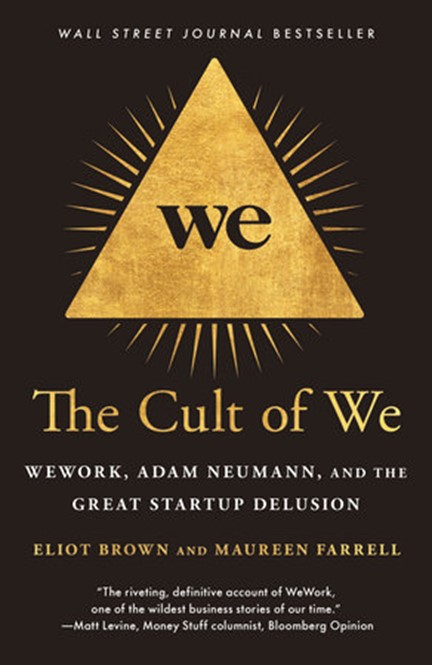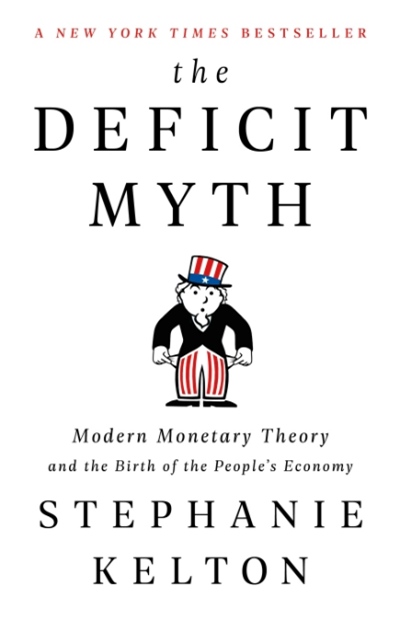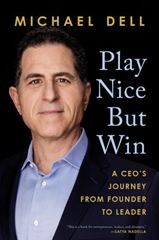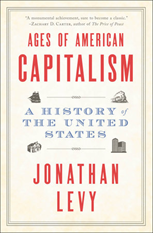Unraveling the Mysteries of the Markets Through Books – Summer 2022 Reading Recommendations
It feels like everyone is ready to get out of town for the summer. There is a lot of pent-up travel energy from the past few years of pandemic doldrums, and everyone deserves a nice, long vacation. I typically like to send out a summer reading list in July, but Spring Fever is calling, and if there was ever a time to get started on summer a little early, it’s now.
Everyone wants to unravel the mystery of the markets. The most seasoned investors won’t tell you this, but they’re all looking for the definitive guide that will give them “the answer” to reading all of the signs and predicting when individual companies, business sectors, and markets on the whole will move in one direction or the other. Pundits build up enormous followings analyzing press releases, cash positions, profit/earning ratios, you name it, in order to “predict” or declare that a company is a “buy, hold, or sell.” I’d love to see their portfolios and compare them to the advice that they are giving. Chances are they do not match up well.
Yet, we all want to know what the markets are and how they work, thinking that the better grasp we have on the nuanced technical details the better we will be at investing. This is especially true when markets are in a downturn. We feel like we need to do something, anything, to get back the control that we feel when the portfolio is gaining in value.
The reality is that markets are fluid organisms made up of fluid organizations that are built and run by fluid people. In other words, markets are fallible, and that is precisely the reason why they are not predictable. Investors as a collective bring reason and logic to the marketplace of investing, which is how markets become forward-looking in terms or price and value. It is also precisely why we don’t invest in individual companies or sectors, which are capable of being all too human. Rather, we invest in the market as a whole and the logic built in by the collective thinking of many smart people.
See for yourself. Here are seven books about markets, finance, and business for you to add to your summer reading list. You’ll discover in these pages tales that are true and still feel unbelievable. For example, you can learn that a company’s value is often at the mercy of one person who likes to stay up drinking tequila into the early hours with employees and spray fire retardant on billionaire investors while arbitrarily valuing their company at $1 TRILLION.
Sounds like a rare story, but read on. The crazy is not so uncommon.
Within these pages are also stories about people who are so smart and creative, that you’ll drive yourself crazy trying to figure out how to find them and invest in their companies. You can’t find them all… unless you invest in the market as a whole.
Before you get started, I’d like to point out two things: First, the summaries here are not my own. They are taken from either the book itself, the publisher, or the distributor. Second, I like all of the books on this list, they are all great reads, but that doesn’t mean that I — or TCI, for that matter — endorse everything that is written in the pages.
Hope you enjoy!
“A capacity, and taste, for reading gives access to whatever has already been discovered by others.”
Abraham Lincoln
The Cult of We: WeWork, Adam Neumann, and the Great Startup Delusion
By Eliot Brown and Maureen Farrell

WeWork would be worth $10 trillion, more than any other company in the world. It wasn’t just an office space provider. It was a tech company—an AI startup, even. Its WeGrow schools and WeLive residences would revolutionize education and housing. One day, mused founder Adam Neumann, a Middle East peace accord would be signed in a WeWork. The company might help colonize Mars. And Neumann would become the world’s first trillionaire.
This was the vision of Neumann and his primary cheerleader, SoftBank’s Masayoshi Son. In hindsight, their ambition for the company, whose primary business was subletting desks in slickly designed offices, seems like madness. Why did so many intelligent people—from venture capitalists to Wall Street elite—fall for the hype? And how did WeWork go so wrong?
In little more than a decade, Neumann transformed himself from a struggling baby clothes salesman into the charismatic, hard-partying CEO of a company worth $47 billion—on paper. With his long hair and feel-good mantras, the six-foot-five Israeli transplant looked the part of a messianic truth teller. Investors swooned, and billions poured in.
Neumann dined with the CEOs of JPMorgan and Goldman Sachs, entertaining a parade of power brokers desperate to get a slice of what he was selling: the country’s most valuable startup, a once-in-a-lifetime opportunity and a generation-defining moment.
Soon, however, WeWork was burning through cash faster than Neumann could bring it in. From his private jet, sometimes clouded with marijuana smoke, he scoured the globe for more capital. Then, as WeWork readied a Hail Mary IPO, it all fell apart. Nearly $40 billion of value vaporized in one of corporate America’s most spectacular meltdowns.
Peppered with eye-popping, never-before-reported details, The Cult of We is the gripping story of careless and often absurd people—and the financial system they have made.
The Deficit Myth: Modern Monetary Theory and the Birth of the People’s Economy
By Stephanie Kelton

The leading thinker and most visible public advocate of modern monetary theory — the freshest and most important idea about economics in decades — delivers a radically different, bold, new understanding for how to build a just and prosperous society.
Stephanie Kelton’s brilliant exploration of modern monetary theory (MMT) dramatically changes our understanding of how we can best deal with crucial issues ranging from poverty and inequality to creating jobs, expanding health care coverage, climate change, and building resilient infrastructure. Any ambitious proposal, however, inevitably runs into the buzz saw of how to find the money to pay for it, rooted in myths about deficits that are hobbling us as a country.
Kelton busts through the myths that prevent us from taking action: that the federal government should budget like a household, that deficits will harm the next generation, crowd out private investment, and undermine long-term growth, and that entitlements are propelling us toward a grave fiscal crisis.
MMT, as Kelton shows, shifts the terrain from narrow budgetary questions to one of broader economic and social benefits. With its important new ways of understanding money, taxes, and the critical role of deficit spending, MMT redefines how to responsibly use our resources so that we can maximize our potential as a society. MMT gives us the power to imagine a new politics and a new economy and move from a narrative of scarcity to one of opportunity.
Lights Out: Pride, Delusion, and the Fall of General Electric
By Thomas Gryta and Ted Mann

How could General Electric—perhaps America’s most iconic corporation—suffer such a swift and sudden fall from grace?
This is the definitive history of General Electric’s epic decline, as told by the two Wall Street Journal reporters who covered its fall.
Since its founding in 1892, GE has been more than just a corporation. For generations, it was job security, a solidly safe investment, and an elite business education for top managers.
GE electrified America, powering everything from lightbulbs to turbines, and became fully integrated into the American societal mindset as few companies ever had. And after two decades of leadership under legendary CEO Jack Welch, GE entered the twenty-first century as America’s most valuable corporation. Yet, fewer than two decades later, the GE of old was gone.
Lights Out examines how Welch’s handpicked successor, Jeff Immelt, tried to fix flaws in Welch’s profit machine, while stumbling headlong into mistakes of his own. In the end, GE’s traditional win-at-all-costs driven culture seemed to lose its direction, which ultimately caused the company’s decline on both a personal and organizational scale. Lights Out details how one of America’s all-time great companies has been reduced to a cautionary tale for our times.
Play Nice but Win: A CEO’s Journey from Founder to Leader
By Michael Dell and James Kaplan

From Michael Dell, renowned founder and chief executive of one of America’s largest technology companies, the inside story of the battles that defined him as a leader
In 1984, soon-to-be college dropout Michael Dell hid signs of his fledgling PC business in the bathroom of his University of Texas dorm room. Almost 30 years later, at the pinnacle of his success as founder and leader of Dell Technologies, he found himself embroiled in a battle for his company’s survival. What he’d do next could ensure its legacy—or destroy it completely.
Play Nice But Win is a riveting account of the three battles waged for Dell Technologies: one to launch it, one to keep it, and one to transform it. For the first time, Dell reveals the highs and lows of the company’s evolution amidst a rapidly changing industry—and his own, as he matured into the CEO it needed. With humor and humility, he recalls the mentors who showed him how to turn his passion into a business; the competitors who became friends, foes, or both; and the sharks that circled, looking for weakness. What emerges is the long-term vision underpinning his success: that technology is ultimately about people and their potential.
More than an honest portrait of a leader at a crossroads, Play Nice But Win is a survival story proving that while anyone with technological insight and entrepreneurial zeal might build something great—it takes a leader to build something that lasts.
Masters of Scale: Surprising Truths from the World’s Most Successful Entrepreneurs
By Reid Hoffman with June Cohen and Deron Triff
What can you learn from a Silicon Valley legend and a pantheon of iconic leaders? The key to scaling a successful business isn’t talent, network, or strategy. It’s an entrepreneurial mindset—and that mindset can be cultivated.
Behind the scenes in Silicon Valley, Reid Hoffman (founder of LinkedIn, investor at Greylock) is a sought-after adviser to heads of companies and heads of state. On each episode of his podcast, Masters of Scale, he sits down with a guest from an all-star list of visionary founders and leaders, digging into the surprising strategies that power their company’s growth. In this book, he draws on their most riveting, revealing stories—as well as his own experience as a founder and investor—to distill the secrets behind the most extraordinary success stories of our times.
Here, Hoffman teams up with Masters of Scale’s executive producers to offer a rare window into the entrepreneurial mind, sharing hard-won wisdom from leaders of iconic companies (including Apple, Nike, Netflix, Spotify, Starbucks, Google, Instagram, and Microsoft) as well as the bold, disruptive startups (such as 23andMe, TaskRabbit, Black List, and Walker & Co.) that are solving the problems of the twenty-first century.
Through vivid storytelling and incisive analysis, Masters of Scale distills their collective insights into a set of counterintuitive principles that anyone can use. How do you find a winning idea and turn it into a scalable venture? What can you learn from a “squirmy no”? When should you stop listening to your customers? Which fires should you put out right away, and which should you let burn? And can you really make money while making the world a better place? (Answer: Yes. But you have to keep your profits and values aligned.)
Based on more than a hundred interviews and including a wealth of new material never aired on the podcast, this unique insider’s guide will inspire you to reimagine how you do business today.
Ages of American Capitalism: A History of the United States
By Jonathan Levy

A leading economic historian traces the evolution of American capitalism from the colonial era to the present—and argues that we’ve reached a turning point that will define the era ahead.
In this ambitious single-volume history of the United States, economic historian Jonathan Levy reveals how capitalism in America has evolved through four distinct ages and how the country’s economic evolution is inseparable from the nature of American life itself. The Age of Commerce spans the colonial era through the outbreak of the Civil War, and the Age of Capital traces the lasting impact of the industrial revolution. The volatility of the Age of Capital ultimately led to the Great Depression, which sparked the Age of Control, during which the government took on a more active role in the economy, and finally, in the Age of Chaos, deregulation and the growth of the finance industry created a booming economy for some but also striking inequalities and a lack of oversight that led directly to the crash of 2008.
In Ages of American Capitalism, Levy proves that capitalism in the United States has never been just one thing. Instead, it has morphed through the country’s history—and it’s likely changing again right now.
The Cold Start Problem: How to Start and Scale Network Effects
By Andrew Chen

A startup executive and investor draws on expertise developed at the premier venture capital firm Andreessen Horowitz and as an executive at Uber to address how tech’s most successful products have solved the dreaded “cold start problem”—by leveraging network effects to launch and scale toward billions of users.
Although software has become easier to build, launching and scaling new products and services remains difficult. Startups face daunting challenges entering the technology ecosystem, including stiff competition, copycats, and ineffective marketing channels. Teams launching new products must consider the advantages of “the network effect,” where a product or service’s value increases as more users engage with it. Apple, Google, Microsoft, and other tech giants utilize network effects, and most tech products incorporate them, whether they’re messaging apps, workplace collaboration tools, or marketplaces. Network effects provide a path for fledgling products to break through, attracting new users through viral growth and word of mouth.
Yet most entrepreneurs lack the vocabulary and context to describe them—much less understand the fundamental principles that drive the effect. What exactly are network effects? How do teams create and build them into their products? How do products compete in a market where every player has them? Andrew Chen draws on his experience and on interviews with the CEOs and founding teams of LinkedIn, Twitch, Zoom, Dropbox, Tinder, Uber, Airbnb, and Pinterest to offer unique insights in answering these questions. Chen also provides practical frameworks and principles that can be applied across products and industries.
The Cold Start Problem reveals what makes winning networks thrive, why some startups fail to successfully scale, and, most crucially, why products that create and compete using the network effect are vitally important today.
Hopefully you found something you’re interested in reading from the list. If you’re still searching for your next read, here are my recommendations from last summer and the summer before that. Is there something you’ve recently read that you’re particularly excited about? Don’t hesitate to reach out! As you can probably tell, I’m always on the lookout for a great book.

